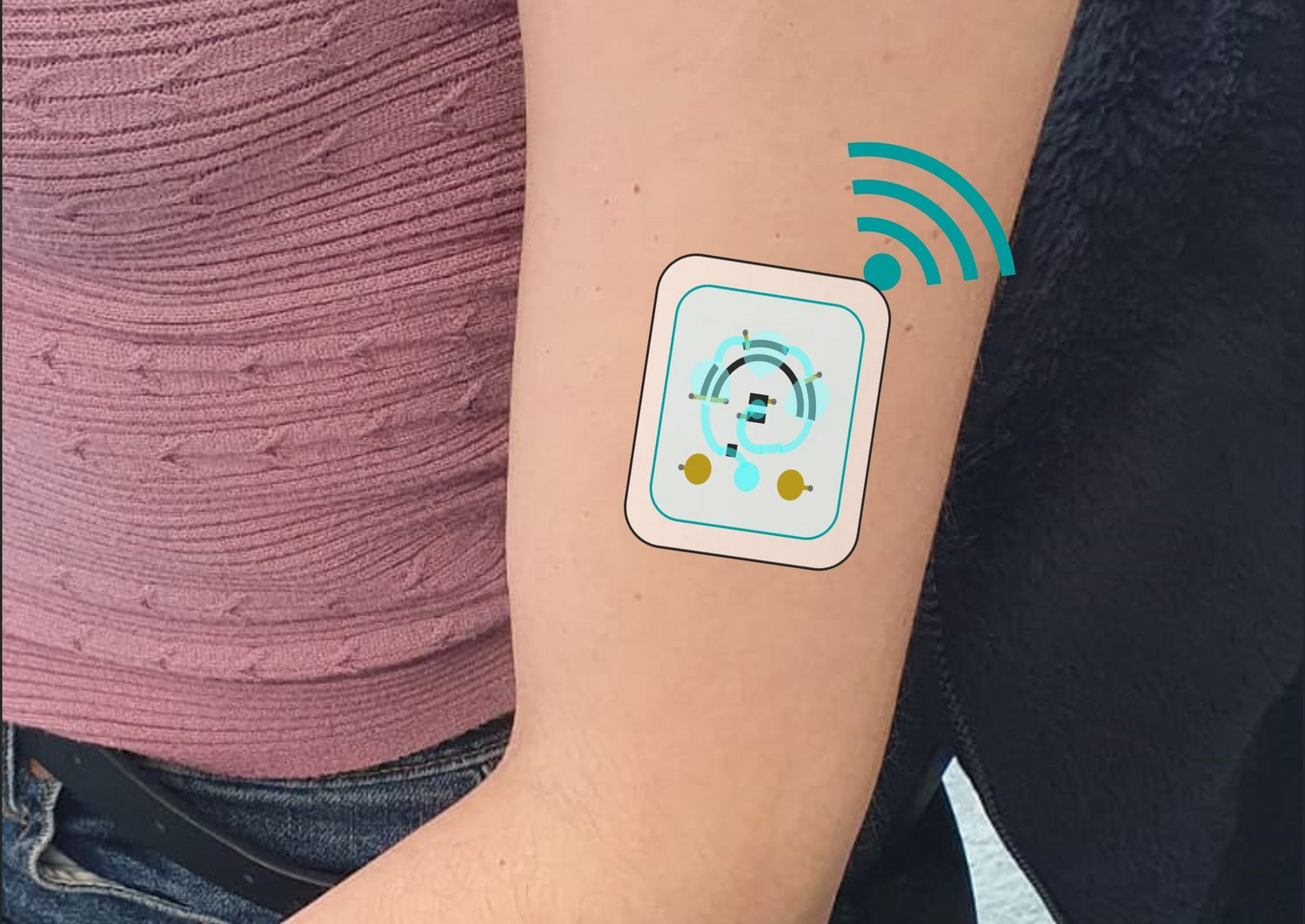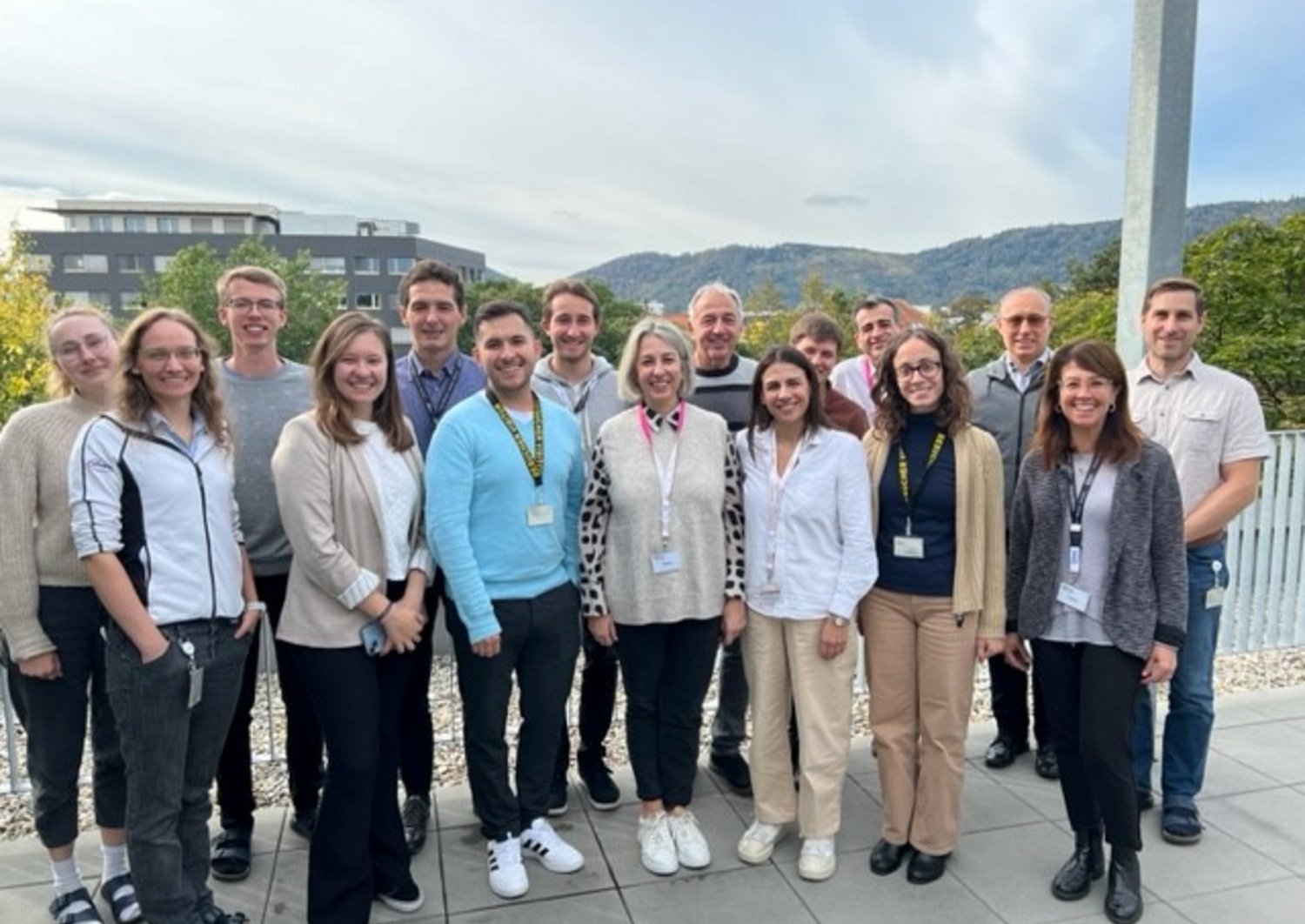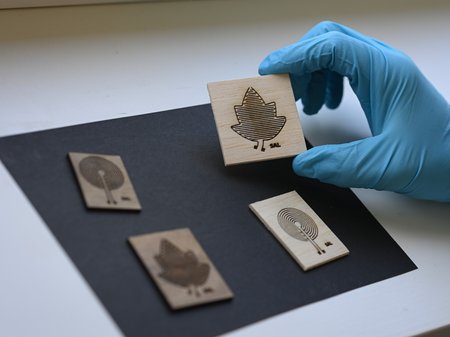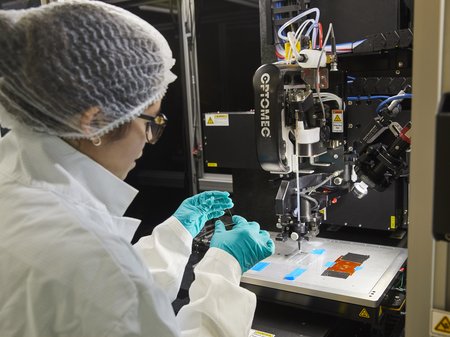Villach, October 25, 2023 – In Europe, more than 100 million people live with Chronic Kidney Disease (CKD), but a vast majority are unaware of their condition. This lack of awareness results in significant health challenges, including higher rates of illness and death, along with substantial healthcare expenditures for reactive treatment. By developing an affordable, non-invasive test device, the research project KERMIT offers a crucial opportunity to screen high-risk groups, such as the elderly and people who suffer from cardiovascular diseases, diabetes, or hypertension. The project is led by Silicon Austria Labs, partners are Infineon Technologies, Technical University of Graz, Consiglio Nazionale delle Ricerche, University of Pisa, University of Ioannina, and Fundacja My Pacjenci.
“We are basically working on a high-tech band-aid that does more than just cover a wound”, explains Daniel Corzo Diaz, scientist and project leader at SAL. “Together with our partners, we are creating a smart patch that helps doctors diagnose kidney disease early and lets patients keep an eye on their health from home. This technology will enable tailored preventive measures, reduce the economic burden on healthcare systems, and direct resources to where they are needed most, ultimately saving lives and healthcare costs.”
The research project, which is funded by the Horizon Europe EIC program, aims to shift healthcare from occasional, symptom-driven care to ongoing, proactive health monitoring. This means that people can have continuous and non-invasive health checks, and doctors can provide a diagnosis, treatment, or follow-up care at just the right time using the best methods based on medical evidence.
KERMIT harnesses multidisciplinary expertise, uniting nephrology impact validation, novel immune-sensing techniques, high-performance printed electronics, CMOS technology integration, and patient-centered design to drive innovation. Key features include a simplified, single-chip electronics system and the use of eco-friendly printable materials, allowing for low-cost mass production.
"Eco-friendly printed sensors represent not only a sustainable technological shift but also a responsible choice for a greener future. They showcase our commitment to innovative solutions that benefit both technology and the environment”, says Jürgen Kosel, Head of Research Unit Advanced Sensors and Electronics Technologies at SAL.
Successful project meeting in Graz
The recent project meeting in Graz, hosted at Infineon Technologies AG, marked a pivotal moment for the research project KERMIT. The project partners gathered for a day filled with insightful discussions across various project dimensions. The agenda covered project management, sensor development, microchip capabilities, printed electronics, clinical testing, and more, with discussions ranging from rule compliance to ethical considerations. Beyond business, the time in Graz provided a platform for building strong connections between the partners. This face-to-face meeting solidified understanding and reinvigorated the commitment to driving innovation in point-of-care biosensor technologies.
About the project KERMIT:
KERMIT (Kidney Disease Sweat sensor patch for Early diagnosis and Remote MonIToring) is an EIC Pathfinder Challenge-funded project that aims to develop a scalable platform for unobtrusive point-of-care diagnostics of kidney disease using sweat-based sensors. The project leverages innovative technologies and a multidisciplinary approach to transform healthcare by promoting remote monitoring and preventive healthcare measures.
The project KERMIT is supported by The European Union through the Horizon Europe EIC programme (Grant Agreement project 101115504). Funded by the European Union. Views and opinions expressed are however those of the author(s) only and do not necessarily reflect those of the European Union or Digital Executive Agency (HADEA). Neither the European Union nor the granting authority can be held responsible for them.
ABOUT SILICON AUSTRIA LABS (SAL)
Silicon Austria Labs GmbH (SAL) was founded in 2018 as part of the European Forum Alpbach as a top non-university center in the field of electronic based systems. At its locations in Graz, Villach and Linz, research is conducted on key technologies in the fields of Microsystems, Sensor Systems, Power Electronics, Intelligent Wireless Systems and Embedded Systems. SAL brings together key players from industry and science and thus valuable expertise and know-how, and conducts cooperative, application-oriented research along the value chain. The aim is to accelerate the value creation process from idea to innovation – with excellent research and economic benefits. Owners are the Republic (50.1%), the Provinces of Styria and Carinthia (10% each), the Province of Upper Austria (4.95%) and the Association for the Electric and Electronics Industry (24.95%).









